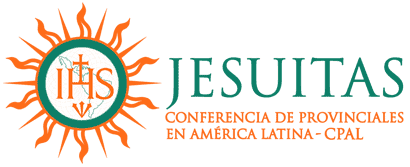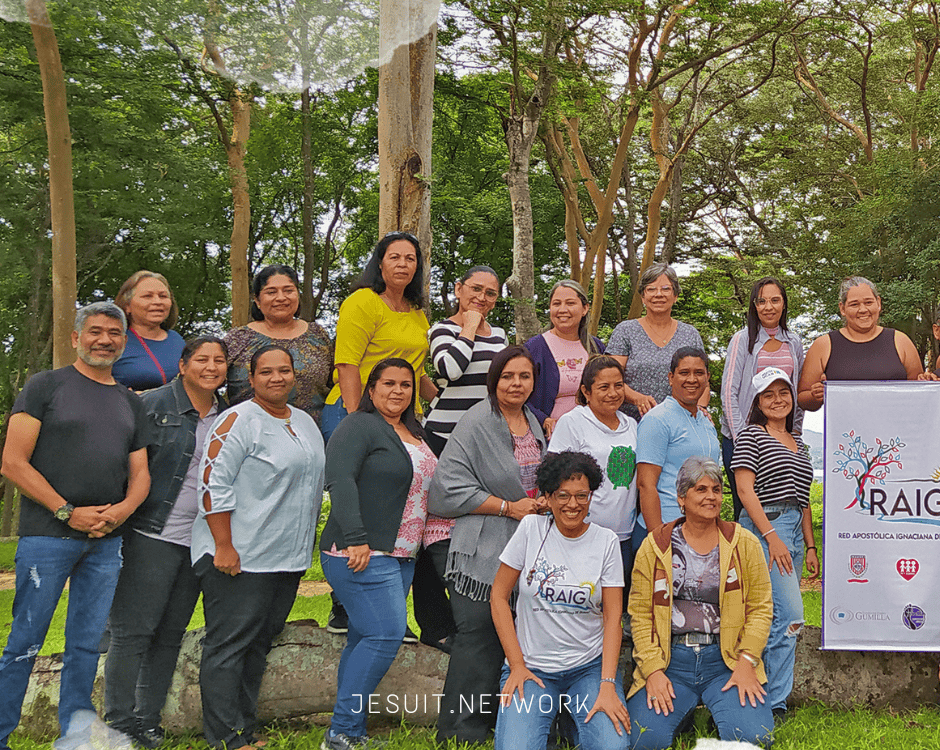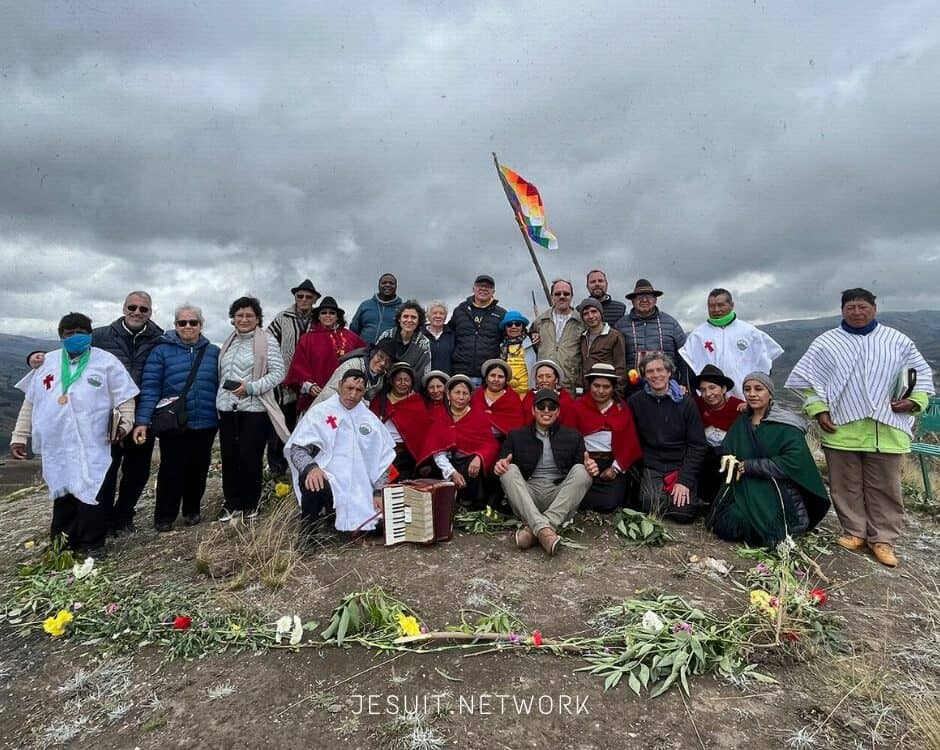This website uses cookies so that we can provide you with the best user experience possible. Cookie information is stored in your browser and performs functions such as recognising you when you return to our website and helping our team to understand which sections of the website you find most interesting and useful.
The educational networks in Latin America
The educational service provided by the Society of Jesus is one of its most important apostolates, both in terms of the number of beneficiaries it reaches and the number of collaborators involved in the same mission. In this article, Luiz Fernando Klein, S.J., delegate for Education at CPAL, aims to present an overview of the educational apostolate that the Society of Jesus is carrying out today in Latin America in formal and non-formal ways.
1. Formal Education
a) Fé e Alegria (FyA) is the oldest Jesuit formal education network in Latin America, created in 1955 by Fr José María Velaz, S.J., in Caracas, and now present in 22 countries: 17 in Latin America, 2 in Europe and 3 in Africa.
Fe y Alegría is an international movement of popular education and social promotion that acts for and with marginalised communities to offer them integral, inclusive and quality educational processes in view of the transformation of the individual and of society.
b) The Association of Universities Entrusted to the Society of Jesus in Latin America (AUSJAL) was founded in 1985 and currently has 30 higher education institutions in 14 Latin American countries, serving around 250,000 students.
Its mission is to promote collaboration and solidarity among partners in order to benefit the mission, identity, institutional development and social commitment. The values they have in mind are: 1) Integral, inclusive and quality formation, 2) The promotion of faith, justice and the triple reconciliation with God, between people and with nature,
between people and with nature.
c) The Latin American Federation of Jesuit Schools (FLACSI) was created in 2001 and is made up of 89 schools from 13 Provincial Education Networks in 18 Latin American countries, with 127,000 students. In addition to Jesuit schools, other mission-related schools are associated with the network.
FLACSI is conceived as an organisation that encourages the strengthening and articulation between associations and educational units in order to contribute to educational and social change. It aims to promote the renewal of the Jesuit educational proposal in its schools and to form global citizens who put themselves at the service of reconciliation.
d) EduRed is a programmatic alliance made up of the three networks mentioned above. It aims to energise the educational apostolate through common projects, as an effective response to the challenges of the socio-environmental situation of the continent.
e) The Network of Distance Education for Youth and Adults (READ), linked to the Jesuit Radio Network, offers formal education with government degrees, as it is on a par with the state face-to-face network.
READ currently incorporates 12 institutions with the aim of supporting the empowerment of the most vulnerable populations and improving their standard of living. There are 60,000 enrolments in its formal education systems and around 200,000 enrolments per year in non-formal education
2. Non-Formal Education
The Jesuit educational apostolate in Latin America is usually only recognised in relation to the three networks mentioned above, but it must be considered that the process imparted by the Jesuits does not end there, nor is education limited to that. Various apostolic works carry out educational programmes in parishes and chapels, spirituality centres, youth centres, communication centres, social centres and works, centres for indigenous people, migrants, small producers and radio stations, as we present below.
a) The network of Jesuit radio stations in Latin America and the Caribbean (RADIOSJLAC) has 80 stations with programming focused on education, citizenship formation and the strengthening of Christian communities. There is also a group of radio stations linked to Jesuit universities where communication students develop the practical part, and some 50 stations incorporate non-formal educational action with awareness-raising campaigns on current issues.
b) The network of Social Centres includes 38 institutions that carry out programmes to have a greater impact on public policies in favour of the most disadvantaged and to promote processes of social transformation based on justice and reconciliation in the region.
c) The Jesuit Migrant Network (RJM) is the common action of more than 60 works of the Society of Jesus in Latin America, present in 19 countries. In different ways they respond to the challenges of forced migration in the continent. RJM works to defend and promote the human rights of vulnerable migrants, displaced persons, refugees and their families. The focus of the work is the analysis and denunciation of the structural causes that force people to flee their territories, and the strengthening of a greater culture of hospitality that contributes to the transformation of society within the mission of Justice and Reconciliation.
d) The network of Solidarity and Indigenous Apostolate (RSAI) is made up of 8 Jesuit provinces in Latin America organised in regions. Jesuits and lay people participate in this network, the majority of whom are members of or belong to indigenous peoples. The network fosters regional collaborations and synergies which, based on cultural and spiritual diversity and a sense of belonging to the body, enlighten and enrich each other.
e) The Comparte Network is part of the Network of Social Centres. It was created in 2011 and is made up of 16 Social Centres from 11 Latin American countries, the Jesuit Service for Pan-Amazonia (SJPAM), Formación para el Trabajo de la Federación FyA and ALBOAN.
Comparte aims to create, with the leadership of producer organisations, peasant communities, indigenous peoples and Afro-descendants, productive economic alternatives to the current economic model.
f) The network of parishes (RELAPAJ) comprises 173 parishes and temples entrusted to the Society of Jesus, with more than 8,000 collaborators in 20 countries. In addition to routine meetings to define and evaluate the apostolate, in 2020 the network began to offer parish communities in Latin America the School of Formation in Ignatian Identity as an offer for reflection and community deepening for the laity.
g) Communication Offices. Since 2019 the coordination of the Communication Office of the CPAL organises the Arandu programme for the communicators of the 12 Provincial Communication Offices. There are training workshops on topics of general interest with the aim of providing mutual knowledge, improving training and collaboration.
h) The Confederation of Centres of Spirituality (CLACIES) has 40 Centres of Ignatian Spirituality and, in addition to the offerings of each unit, offers courses for those accompanying the Spiritual Exercises and the Cardoner Courses on Ignatian Autobiography.
i) Collaboration with others. CPAL understands that collaboration is not a network or a sector, but a theme that should feature in all apostolic networks. This spirit of collaboration has meant that, in the difficult and uncertain period of confinement caused by the pandemic, collaborators in the various apostolic areas have been able to work together and share information and resources.
The named institutions are based on the Universal Apostolic Preferences (PAU), the Common Apostolic Project (PAC), the Common Educational Project (PEC) and the institutional documents of the Society. To learn more about these networks, their priority programmes, achievements and challenges, the full document can be found here.
The formal and non-formal educational work of the Society of Jesus in Latin America has a twofold concern: the full development of the human being and, from there, the proper functioning of society. A new education is necessary, for which a new school must be built with the help of all the forces of society, in collaboration.






